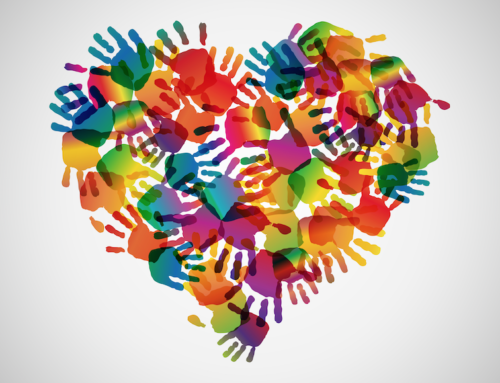The Trouble with Tradition
June 16, 2016
Categories: Religion/Spirituality
I love having traditions and rituals in my life. For example, during the Christmas Eve service at my church growing up, we would end the service by singing Silent Night. The tradition was that during the song, you would give your family and friends a hug and tell them you loved them. The pastor would always make a joke to be cautious about hugging people you didn’t know. The tradition happened every year, it was comforting, and I felt a part of something bigger than myself.
Or take another example. One of the reasons I love going to Texas Rangers baseball games are the traditions. I don’t eat a lot of hot dogs in my life, but when I go to a baseball game, I always order a hot dog, a bag of peanuts, and a beer. I like it that I know what to expect—fireworks after each Ranger home run, singing along to ‘Deep in the Heart of Texas,’ and the seventh inning stretch. The traditions happen each game, they are comforting, and it makes me feel like I’m part of the community.
Traditions and rituals are important to any cultural group. They are signals and signs that are familiar. They mark the fact that you are part of the group, and have been for quite some time. Traditions help bind a community or group together.
But there is a dark side to tradition. Although traditions help to bind a group together, they can also signal to those outside the group that they are on the outside looking in. If you aren’t a Christian, for example, you might be puzzled by the Silent Night tradition, and how meaningful it was for me. When friends visit from out of state, they don’t know all the lines to the ‘Deep in the Heart of Texas’ song, so it’s a reminder that they aren’t really part of the group.
These are somewhat innocuous examples, but at their worst, traditions can promote exclusion, prejudice, and discrimination toward people who are different. For example, traditions have been linked to racism, sexism, heterosexism, and religious intolerance.
Jesus had some harsh things to say about religious tradition. In his day, the people who were most religious thought religious traditions were very important, but they neglected the more important ‘heart matters’ such as love, mercy, and justice. Here’s a conversation between Jesus and the Pharisees in the Gospel of Matthew:
Then some Pharisees and teachers of the law came to Jesus from Jerusalem and asked, “Why do your disciples break the tradition of the elders? They don’t wash their hands before they eat!”
Jesus replied, “And why do you break the command of God for the sake of your tradition? For God said, ‘Honor your father and mother’ and ‘Anyone who curses their father or mother is to be put to death.’ But you say that if anyone declares that what might have been used to help their father or mother is ‘devoted to God,’ they are not to ‘honor their father or mother’ with it. Thus, you nullify the word of God for the sake of your tradition… Listen and understand. What goes into someone’s mouth does not defile them, but what comes out of their mouth, that is what defiles them” (Matthew 15:1-7, 10-11).
The religious leaders had certain traditions that they thought were very important (e.g., washing hands, not eating certain types of foods, giving a certain percentage of one’s income to the church). But the religious leaders were encouraging people to prioritize these traditions over and above the more important commands of God, such as taking care of your parents, showing mercy to others, and acting justly.
Later Jesus explains his critique about the overemphasis on traditions:
“Don’t you see that whatever enters the mouth goes into the stomach and then out of the body? But the things that come out of a person’s mouth come from the heart, and these defile them. For out of the heart come evil thoughts—murder, adultery, sexual immorality, theft, false testimony, slander. These are what defile a person; but eating with unwashed hands does not defile them” (Matthew 15: 17-20).
Jesus is clear. He uses language that my friend’s kid who is potty training could understand. It doesn’t matter what you eat. The food you eat goes into your stomach, and then you poop it out. Similarly, it doesn’t matter if you go through a big ceremony to wash your hands before you eat. That’s just a tradition. It’s a minor thing. The important thing to consider is the condition of your heart, and the behaviors that come out of it.
Discussion: How much emphasis do you place on traditions? Do you see any problems with the traditions that you view as important? What is one step you could take to emphasize the condition of your heart instead of your tradition?
Related Thoughts

Subscribe To My Newsletter
Join my mailing list to receive the latest blog posts.
Receive my e-book “The Mental Health Toolkit” for free when you subscribe.





